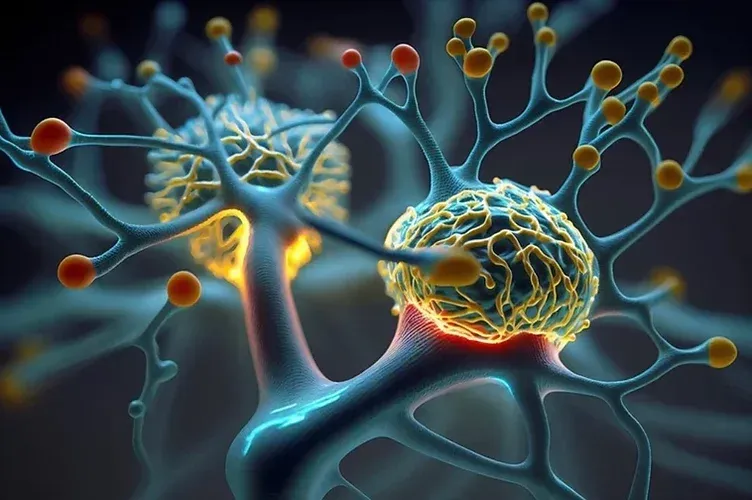
Uncorking the Truth: Alcohol's Impact on Mental Health

Uncorking the Truth: Alcohol’s Impact on Mental Health

May is Mental Health Awareness Month, a time when we acknowledge the importance of mental health and celebrate the progress society has made in understanding and supporting those with mental health challenges. It’s also a valuable reminder to further explore our own mental health and consider how we can foster a healthier mindset for ourselves and future generations.
When reflecting on how we mentally and emotionally process our lives and the world around us, it’s important to acknowledge that an abundance of internal factors and external influences that impact our mental health. Genetics, heritability, biological factors and illness, as well as stress, trauma, socioeconomic, medications, and substances such as drugs and alcohol are all risk factors that can play a role in mental health disorders
Which came first, the Chicken or the Egg?
As we assess our relationship with alcohol and educate ourselves on its impact on our mental health, we find that the link between the two is complex, and the causality complicated. Research has shown that there is a bidirectional relationship between alcohol use disorder and depressive disorders, for example, and it is often difficult to identify which came first, the substance use disorder or the depressive disorder. However, regardless of causation, both disorders often co-exist, can increase the risk for the other, and can worsen the effect of the other. The bottom line is this relationship is definitely worth paying attention to, and this understanding can pave the way for upgrading almost every aspect of our lives.
The Mistaken Benefit of Alcohol to Alleviate Mental Health Disorders
People struggling with mental health issues frequently seek distraction or escape. This is largely due to an inability to regulate their nervous systems effectively, or from lacking the knowledge and skills to do so! Alcohol seemingly sweeps in and “saves the day,” but unfortunately, this temporary solution typically exacerbates the problem. Someone suffering from anxiety or depression, for example, might turn to alcohol to numb their feelings, but alcohol – a depressant – often deepens these feelings over time as a result of the body’s chemical reaction to alcohol consumption.
PubMed Central explains that “Alcohol interacts with several neurotransmitter systems in the brain's reward and stress circuits. These interactions result in alcohol's acute reinforcing effects. Following chronic exposure, these interactions in turn cause changes in neuronal function that underlie the development of alcoholism.” This complex relationship between alcohol and neurotransmitters dopamine and serotonin explains behind why people experience feelings of pleasure while buzzed and then a deepening sense of depression or anxiety after it wears off. Over time, an increasing consumption and chronic use of alcohol, exacerbates the underlying depressive disorders. The Addiction Center shares that 63% of people with alcohol use disorder experience these major depressive disorders.
Alcohol as a Mental Health Disorder Trigger
In many instances, people who do not initially struggle with mental health issues develop them through excessive alcohol consumption. As discussed, when the brain's chemistry is altered due to alcohol use, it negatively impacts the neurotransmitters that regulate our mood. Regular drinking can lead to a persistent state of chemical imbalance, making it challenging for the brain to produce these chemicals naturally, which can in turn, leads to mental health issues.
For some who started drinking socially, but over time, increased consumption and frequency, their brain begins to rely on alcohol for the release of dopamine, the pleasure-inducing neurotransmitter. As that frequency and amount increases, they often find that without alcohol, they feel a lack of pleasure and motivation, which in turn leads to depression.
The Bottom Line

Whether alcohol is used as an escape from life’s difficulties or as a recreational pastime, we should educate ourselves on the truth behind its impact on our bodies. Understanding the chemical reaction that is taking place, and its long-term ramifications, better equips us to make informed decisions around this toxic substance, and opens the door to exploring alternative and more constructive ways to manage emotional trauma than seeking temporary relief through substances. There is a vast array of healthier coping strategies and support systems.
Holistic mind, body, and soul healing is possible and has been a large part of my own healing journey, as I navigated trauma, grief, anxiety, and my past reliance on alcohol. I now help clients find this same freedom and change the trajectory of their lives, and the resulting gratitude I feel far surpasses any temporary dopamine response that alcohol ever provided.
As we reflect on Mental Health Awareness Month, let us remember that mental health is inseparable from our overall wellbeing. May we uproot what no longer serves us, and plant something better, healthier, and stronger in its place.
Please subscribe to our newsletter for updates about events and more tools and tips for finding AFreeLife!



© 2024 - AFreeLife - All Rights Reserved
Joy Stieglitz is a certified Sobriety and Wellness Coach who specializes in helping sandwich generation people change their relationship with alcohol to find true freedom and joy in their life. Alcohol Free since November 2019, Joy brings valuable insights into her practice. AFreeLife Coaching is a safe space where all are welcome to explore their desire for health, wellness, and personal growth regardless of where they are or want to go on their journey with alcohol, and regardless of age, race, gender, sexual orientation, religious affiliation, or any other social construct.

